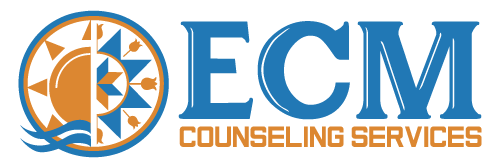How Counseling Services Can Assist You
Do you feel overwhelmed, stuck, or need help navigating life’s challenges? Counseling services offer a lifeline of support and guidance to help you find your way. In this fast-paced world, taking care of our mental well-being is essential. Counseling services provide a safe and confidential space to explore your emotions, gain self-awareness, and develop coping strategies. Whether you’re struggling with stress, relationship issues, or personal growth, counseling services can empower you to overcome obstacles, heal emotional wounds, and unlock your full potential.
Understanding Counseling Services
Scope of Counseling Services
Counseling services encompass a wide range of therapeutic interventions aimed at helping individuals, couples, families, and groups overcome emotional, behavioral, and mental health challenges. It involves a collaborative relationship between a trained professional counselor and the client(s), providing a safe and confidential space to explore thoughts, feelings, and concerns. The primary goal of counseling services is to facilitate personal growth, enhance well-being, and foster positive changes in various aspects of life.
Counseling services address a diverse array of issues, including but not limited to anxiety, depression, stress, relationship conflicts, grief, trauma, self-esteem, career transitions, and personal development. By utilizing evidence-based techniques and approaches, counselors help clients gain insight, develop coping strategies, and build resilience to navigate life’s challenges more effectively.
Different Types of Counseling Specialties
- Individual Counseling: Individual counseling provides one-on-one support to address personal issues and concerns. It is a collaborative process where the counselor assists clients in exploring their thoughts, emotions, and behaviors to develop a deeper understanding of themselves. Through this process, individuals can gain clarity, learn healthier coping mechanisms, and work towards achieving personal goals.
- Couples Counseling: Couples counseling, also known as marriage or relationship counseling, is specifically designed to address conflicts, enhance communication, and strengthen the relationship between partners. Whether dealing with ongoing issues or seeking premarital counseling, couples work with a counselor to improve understanding, resolve conflicts, rebuild trust, and foster a healthier and more fulfilling relationship.
- Family Counseling: Family counseling involves working with the entire family unit to improve communication, resolve conflicts, and promote healthy dynamics. This type of counseling recognizes the interconnectedness of family members and aims to address issues affecting the family system. Family counseling helps strengthen relationships, improve problem-solving skills, and enhance overall family functioning.
- Group Counseling: Group counseling involves a small group of individuals, usually with similar concerns or shared experiences, coming together in a therapeutic setting facilitated by a counselor. Group counseling provides a supportive and confidential environment where participants can express themselves, gain different perspectives, and learn from one another. It promotes self-reflection, empathy, and interpersonal skills while fostering community and shared support.
https://www.youtube.com/watch?v=86KJi3lGZ8o
The Benefits of Counseling Services
Emotional Support and Validation
During life’s challenges, we all need a safe space to express our emotions and be heard without judgment. Counseling services provide a vital source of emotional support and validation. A skilled counselor offers empathy, understanding, and a non-judgmental environment where you can freely explore your thoughts and feelings. This support helps alleviate feelings of loneliness, anxiety, and depression as you gain a sense of validation, comfort, and relief. Through counseling, you discover that you are not alone in your struggles and that in itself can be incredibly empowering.
Developing Coping Mechanisms
Life can often throw unexpected curveballs, leaving us overwhelmed and unsure of how to cope. One of the significant benefits of counseling services is the opportunity to develop effective coping mechanisms. A counselor works with you to identify your unique strengths and challenges, helping you develop practical strategies to navigate difficult situations. You learn healthy coping mechanisms through counseling, such as stress management techniques, relaxation exercises, and problem-solving skills. These tools empower you to face life’s obstacles with resilience and confidence.
Improving Communication Skills
Effective communication is the cornerstone of healthy relationships, both personal and professional. Counseling services offer a supportive environment for improving your communication skills. A counselor helps you enhance your ability to express yourself clearly, listen attentively, and resolve conflicts constructively. Through therapy, you learn to identify and overcome communication barriers, develop assertiveness, and foster empathy. These newfound communication skills extend beyond therapy sessions, positively impacting your relationships and interactions in all areas of your life.
Gaining Self-Awareness and Insight
Self-awareness is a powerful tool for personal growth and transformation. Counseling services provide a unique opportunity to gain deeper insights into yourself. Through introspection and guided exploration, you better understand your thoughts, emotions, behaviors, and patterns. A skilled counselor helps you identify underlying beliefs and experiences that may influence your life choices. This newfound self-awareness allows you to make conscious decisions, break unhealthy patterns, and cultivate a stronger sense of self.
Setting and Achieving Goals
Often, we find ourselves needing help or direction in life. Counseling services can assist you in setting and achieving meaningful goals. A counselor works collaboratively with you to identify your aspirations and create a roadmap for personal growth. They help you break down large goals into manageable steps, offering guidance and support. Through therapy, you gain clarity on your values, passions, and purpose, empowering you to make intentional choices and move closer to your desired outcomes.
How Counseling Services Can Help Specific Challenges
Managing Stress and Anxiety
Stress and anxiety have become increasingly common in our fast-paced, demanding lives. Counseling services offer invaluable support in managing and overcoming these challenges. A trained counselor can help individuals identify the root causes of their stress and anxiety, develop effective coping strategies, and learn relaxation techniques. Through talk therapy and evidence-based interventions, counseling services provide a safe space to explore triggers, manage symptoms, and regain a sense of calm and control.

Overcoming Depression and Mood Disorders
Depression and mood disorders can be debilitating, affecting every aspect of a person’s life. Counseling services play a crucial role in helping individuals navigate these emotional struggles. Professional counselors offer compassionate guidance, helping clients understand the nature of their depression, identify negative thought patterns, and develop healthy coping mechanisms. Counseling services enable individuals to regain hope, find purpose, and work towards healing by providing a non-judgmental space to express feelings.
Healing from Trauma and PTSD
Traumatic experiences can leave deep emotional scars and impact one’s mental well-being. Counseling services provide a vital pathway to healing for individuals struggling with trauma and post-traumatic stress disorder (PTSD). Counselors trained in trauma-focused therapies offer techniques such as cognitive-behavioral therapy (CBT), eye movement desensitization and reprocessing (EMDR), and somatic experiencing. These approaches facilitate processing traumatic memories, reducing distressing symptoms, and promoting emotional resilience.
Resolving Relationship Conflicts
Relationship conflicts can cause significant distress and negatively impact one’s overall quality of life. Counseling services offer a neutral and supportive environment for couples, families, or individuals seeking to address relationship challenges. Skilled counselors facilitate open communication, provide tools for conflict resolution, and help individuals explore underlying issues contributing to the conflict. Clients can develop healthier relationship dynamics through counseling, enhance intimacy, and rebuild trust.
Dealing with Grief and Loss
Losing a loved one or experiencing a significant loss can be overwhelming. Counseling services provide a compassionate and empathetic space for individuals to process their grief and find ways to cope with the loss. Grief counseling can assist individuals in navigating the stages of grief, validating their emotions, and developing healthy coping strategies. By addressing unresolved emotions and adjusting to life changes, counseling services support individuals in their journey toward healing and finding new meaning.
Finding the Right Counseling Services for You
Researching and Evaluating Counselors
- Qualifications and Expertise: Begin by researching counselors who specialize in the areas relevant to your needs, such as anxiety, depression, relationships, or trauma. Look for professionals who have the necessary qualifications, certifications, and licenses.
- Online Presence and Reviews: Explore their online presence, including websites, social media profiles, and directories. Read client reviews and testimonials to gain insights into their therapeutic approach and success stories.
- Professional Associations and Credentials: Verify if the counselor is a member of reputable professional associations, such as the American Counseling Association or the British Association for Counseling and Psychotherapy. Membership indicates adherence to ethical guidelines and ongoing professional development.
Considering Personal Compatibility
- Therapeutic Approach: Consider the counseling approach that aligns with your preferences and values. Some common approaches include cognitive-behavioral therapy (CBT), psychodynamic therapy, humanistic therapy, and mindfulness-based therapy. Reflect on what resonates with you and seek a counselor who employs those techniques.
- Communication Style: Reflect on your communication style and the type of counselor you feel comfortable with. Do you prefer someone who listens actively, offers direct advice, or guides you through self-discovery? Finding a counselor whose communication style complements your own will enhance the effectiveness of therapy.
- Cultural Sensitivity: If cultural or diversity factors are important, seek a counselor who demonstrates cultural competence and respect for your background. They should be open-minded, non-judgmental, and capable of understanding the unique challenges you may face.
Cost and Insurance Coverage
- Financial Considerations: Determine your budget for counseling services. Research and compare the fees charged by different counselors in your area. Consider whether you can afford sessions on a weekly or monthly basis and for how long.
- Insurance Coverage: Check if your health insurance plan covers counseling services. Inquire about the extent of coverage, copays, or deductibles and whether there are limitations on the number of sessions or specific providers you can choose.
Seeking Referrals and Recommendations
- Trusted Sources: Seek recommendations from trusted sources such as friends, family, or healthcare professionals. They may have firsthand experiences or know reputable counselors who can address your concerns.
- Online Directories: Utilize online directories and platforms that provide a database of licensed counselors. These platforms often include reviews and ratings from previous clients, helping you gain further insights into their reputation.
- Consultation Calls: Consider scheduling consultation calls with potential counselors. This allows you to ask questions, discuss your needs, and understand their approach. A brief conversation can help you gauge their expertise, personality, and whether they would fit you well.
Counseling services offer invaluable assistance in navigating life’s challenges and improving mental well-being. Counseling can empower you to overcome obstacles and unlock your full potential through emotional support, coping mechanisms, improved communication skills, self-awareness, and goal setting. If you’re ready to embark on this transformative journey, don’t hesitate to contact us today at 484-925-1514, and let our professional counselors guide you toward a healthier, happier, and more fulfilling life. Take the first step towards a brighter future – you deserve it!




